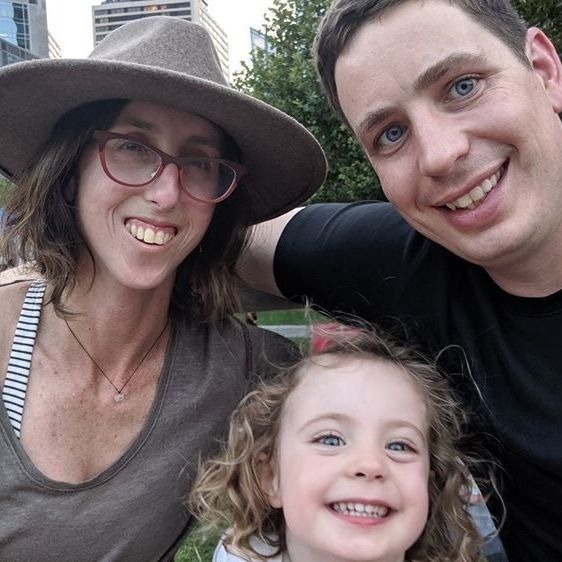Rachel Lando
Utah (United States)
RACHEL LANDO
Scleroderma Stories Issue 1

What type of scleroderma do you have?
I live with diffuse scleroderma. After months of symptoms including sausage fingers, black fingertips with ulcers, fatigue, joint pain, and general inflammation, I was diagnosed in August of 2012.
How did you feel upon being diagnosed with scleroderma?
I had not heard of the disease prior to diagnosis, and I definitely felt fearful. Even though my rheumatologist reassured me otherwise, medical sources on the internet stated that the majority of diffuse scleroderma patients died within five to ten years. My disease initially progressed rapidly, and I started to feel certain that I would be in the five-year life expectancy camp.
By January of 2013, slightly less than five months after diagnosis, my body was failing. There was inflammation everywhere – including my brain – and I started to lose function of my legs and ultimately my mind.
I can’t remember everything that occurred, but at a certain point, the University of Utah Hospital called my father and told him to get on a plane immediately if he wanted to see me alive again. My mother had died 11 months prior, so my family was already steeped in death. It was a hard time.
What kinds of doctors have you seen, and what medical workups and treatments have you had?
Rheumatologist, cardiologist, pulmonologist, gastroenterologist, infectious disease (because of osteomyelitis), opthalmologist (Sjögren’s), dermatologist, and wound care.
For treatments, I have tried UV light therapy, hyperbaric, one study treatment (Humera), PT, and movement therapy. I currently take a few medications as well. I regularly undergo pulmonary function tests (PFTs), echocardiograms, blood and urine testing, and skin biopsies for one study.
What treatments have you found most helpful?
I haven’t found any particularly helpful other than the medication Plaquenil. Minimizing stress helps as well, but that’s not exactly a treatment.
What lifestyle changes have you made?
In terms of lifestyle, I elected (qualified, perhaps) to go on disability after the failure of my large intestine in August of 2017.
Scleroderma has forced me to slow down. Superficially, my fingers are permanently contractured; the “curling” of my fingers has left both my hands in fists. Although there has been some loosening, my skin is tight, and my mouth is very small. Dental issues have become difficult to manage, and eating is a challenge.
I work part-time for a concierge medical doctor. My title is membership director, but I wear many hats. For the most part, I am able to focus on enjoying my time with my four-year-old. I have also become a much healthier eater, and I completed yoga teacher training this past November. My purpose has shifted from achieving the American Dream to living the healthiest life possible and giving back to the disabled community however I can. I have been making efforts to ultimately teach movement to the chronically ill.
What mindset changes have you made?
Ironically, I tend to be more positive than before and less anxious as well. The truth is that most issues don’t bear weight in our lives unless we concentrate on them. I do remain concerned about larger national and global issues like healthcare and education reform and environmental policy.
What advice do you have for those with scleroderma or other chronic illnesses?
Your disease does not define you; the possibilities for your life remain infinite. Develop a strong support system. Don’t be afraid to ask for help or let people know what’s going on. Trust your instincts. If something doesn’t feel right, try something that does. Don’t fight your disease, live with it. Learn your boundaries and cultivate everything inside of them. Pain is part of life. All we can do is laugh. Make sure to treat those helping us with gratitude and life.
Be sure to follow us on Instagram and Facebook (@sclerounited) to see more scleroderma warriors’ journeys in our weekly Sclero Sunday series.
Are you a scleroderma warrior? We’d love to interview you for Scleroderma Stories! Please visit tinyurl.com/share-my-sclero-story or email us at contact@sclerounited.us

